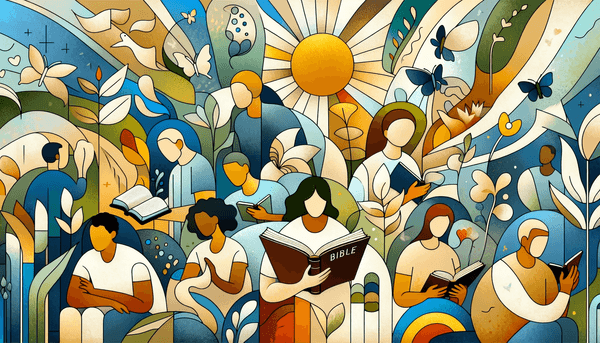The Purpose of Human Creation
The Christian narrative unfolds to reveal a God who creates with intentionality and purpose. Humanity is designed to reflect God's love, as expressed in 1 John 4:8, where God is identified as love itself. This purpose is woven into the very fabric of our being, chosen before the foundation of the world to be holy and blameless in His sight (Ephesians 1:4-5). The Scriptures also point to the glorification of God as the ultimate end of creation (Isaiah 43:7), with all things created for His pleasure (Revelation 4:11). Furthermore, humans are invited to participate in God's redemptive work, created in Christ Jesus for good works (Ephesians 2:10) and called to be ambassadors for Christ, given the ministry of reconciliation (2 Corinthians 5:17-20).
The Mystery of God's Will in Human Suffering
The presence of suffering and loss within the world is one of the most challenging aspects of the human experience. The Bible does not shy away from these realities, often offering a perspective that transcends our immediate understanding. The prophet Isaiah speaks of the righteous being taken away to be spared from evil (Isaiah 57:1-2), while Paul in Romans 8:28 assures believers that all things work together for good for those who love God. The Psalms provide comfort in acknowledging God's nearness to the brokenhearted (Psalm 34:18), and the apostle Paul speaks of God as the Father of mercies and God of all comfort (2 Corinthians 1:3-4). The hope of eternal life and the promise of a future without suffering (John 14:1-3, Revelation 21:4) offer solace and perspective amidst the trials of life.
Conclusion
In exploring the depths of the biblical narrative and its implications for humanity, we encounter a rich tapestry of divine love, purpose, and promise. From the dignity of being made in the image of God to the complexities of interpreting cultural contexts, the Scriptures provide guidance and insight for believers navigating the journey of faith. The themes of stewardship, idolatry, purpose, and suffering are interwoven with the overarching story of redemption, inviting us to live lives that are deeply connected to God's eternal plan. As we continue to delve into these sacred texts, may we find ourselves drawn closer to the heart of God, shaped by His love, and compelled to reflect His glory in every aspect of our lives.
FAQ
Q: What does it mean to be made in the image of God?
A: Being made in the image of God means that humans possess an inherent value, dignity, and the capacity for relationship with God. It imbues us with divine likeness and invites us to reflect God's love, wisdom, and glory.
Q: How should we understand the cultural context of Paul's teachings?
A: Paul's teachings, including those on head coverings, were specific to the communities and issues of his time. Understanding the cultural and historical context helps us discern the underlying principles that can be applied today.
Q: Are creative expressions like art allowed in worship?
A: Yes, creative expressions are allowed and can be a meaningful part of worship, as long as they do not lead to idolatry and are used to honor and glorify God.
Q: How does the Bible address human suffering?
A: The Bible acknowledges the reality of suffering and offers comfort through God's presence, sovereignty, and the hope of eternal life, encouraging believers to trust in God's greater plan and purpose.






